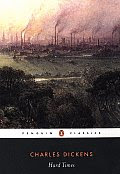
Scott O'Dell, Island of the Blue Dolphins
As I continue to look for good novels that I can read with my freshman students, I find that this one is pretty good. Based loosely on a true event, the protagonist is Karana, a native Polynesian girl in the village of Ghalas-at whose life is remarkably altered when a shipful of Russian sailors descend upon her island to hunt sea otters and, when forced to pay for the skins, brutally murder many of the villagers. When a ship of allies later comes to transport her people to a safer location (and forgets to bring her brother), Karana leaps from the ship and returns to the island in the hopes of living with her brother until another ship arrives. But a pack of wild dogs quickly changes those plans.
Forced to live alone on the island, the majority of the novel traces Karana's years on the island as she builds a shelter, hunts devilfish, domesticates wild dogs, survives an earthquake, and learns the value of balancing survival with a respect for the natural order of animal life.
But what I especially liked about this little book is that it departs from the typical "protagonist-changes-for-the-better-over-the-course-of-the-novel" formula that seems to dominate so much of current YA literature (or at least the works I've read ... see my February 4, 2007 blogspurt re: Fever). Karana is a strong and independent character from the start, and her isolation on the island merely affords additional ways through which she can exhibit that strength and independence. And it's SO nice to finally have a female POV that isn't cluttered with whininess and a nauseating obsession with boys!
This is a good book, especially for younger readers. Check it out.
